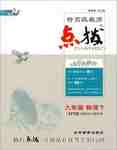题目内容
【题目】假定英语课上老师要求同桌之间交换修改作文,请你修改你同桌写的以下作文。文中共有l0处语言错误,每句中最多有两处。错误仅涉及一个单词的增加、删除或修改。
增加:在缺词处加一个漏字符号(![]() ), 并在其下面写出该加的词。
), 并在其下面写出该加的词。
删除:把多余的词用(\)划掉。
修改:在错的词下画一横线,并在该词下面写出修改后的词。
注意:l. 每处错误及其修改均仅限一词;
2. 允许修改10处, 多者(从第11处起)不计分。
Last month, I, as well as my parents, were invited to my uncle’s home in the United States. My uncle, moved to America when I was five, has been living there for nearly ten years. She met us in the airport. I was exciting when I set my foot on the land of America. In the followed days, we visited some places of interest and took photos in the front of the Statue of Liberty. We all enjoyed visiting the Museum of Natural History so it enriched our knowledge great. For me, this is one of the most rewarding trips which I have ever made in my life and I look forward to go there again.
【答案】
【1】were→was
【2】在moved前加who
【3】She→He
【4】exciting→excited
【5】followed→following
【6】去掉front前的the
【7】so→because
【8】great→greatly
【9】which→that
【10】go→going
【解析】
试题分析:试题分析:本文通过阅读并修改短文,考查学生对固定搭配,动词时态和语态,名词的单复数问题,以及强调句式的辨别和运用。
【1】were→was 考查主谓一致。as well as my parents是伴随状语,不是主语,主语只有I,所以谓语动词是was。
【2】在moved前加who 此处My uncle是先行词,指人,在后面的非限制性定语从句中作主语,故在moved前加who。
【3】She→He 根据句意可知是My uncle,故把She改为He。
【4】exciting→excited 句意:当我踏上美国的土地时我感到兴奋。excited表示“感到兴奋的”,用来修饰人;exciting表示“令人兴奋的”,用来修饰事物。
【5】followed→following 句意:在接下来的日子里。followed表示“跟从的,服从的”,following表示“接着的”,故改为following。
【6】去掉front前的the 句意:在the Statue of Liberty前面拍照。表示“在……前面”用in front of,in the front of表示“在……前部”。
【7】so→because 句意:我们都喜欢参观历史博物馆,因为它能使我们的知识丰富。表示“因为”,故把so改为because。
【8】great→greatly 副词修饰动词,故把great改为greatly。
【9】which→that the most rewarding trips最高级修饰先行词,关系词要用that,故把which改为that。
【10】go→going 固定搭配:look forward to doing sth.期盼做某事,故把go改为going。
【知识拓展】
1.to作介词讲时的用法
to作介词讲时,后面常用名词、代词宾格和动名词。
the key to solving the problem 解决这个问题的关键;the road to success 通向成功的路;a trip to London 伦敦的一次旅行;a visit to Paris pay巴黎的一次访问;pay attention to 重视; object to反对;look forward to期盼。
2. 表示情感的现在分词和过去分词
surprising令人惊讶的,surprised感到惊讶;frightening令人害怕的, frightened感到害怕; moving令人感动的, moved 感动;exciting 令人兴奋的,excited 感到兴奋;boring令人厌烦的, bored感到厌烦。现在分词的主语通常指事物;过去分词的主语通常指人。

 特高级教师点拨系列答案
特高级教师点拨系列答案


